
October 15, 2021
Four years after the reporting that launched the #MeToo social movement against sexual abuse and sexual harassment into the spotlight, nearly half of Americans say the recent attention to sexual misconduct has had a positive impact on the United States overall, and 61% think it has been beneficial for women.
Women and men are both less likely to call sexual misconduct a serious problem at workplaces in general or at their own workplace compared with 2017, and most Americans think the movement is leading to more people speaking out and more companies taking action to prevent it. Many report they are personally more likely to speak out.
Asked about the impact of the movement on different groups, there are signs that the impact has been unequal, with fewer seeing positive changes for women of color than for women in general. Women and men view the impacts similarly, except when asked about their own experience. Thirty-one percent of women say the focus on sexual misconduct has had a positive impact on them personally, compared with 23% of men.
Democrats and college educated people are more likely to say the recent spotlight on sexual misconduct has had a positive impact on different groups of people.
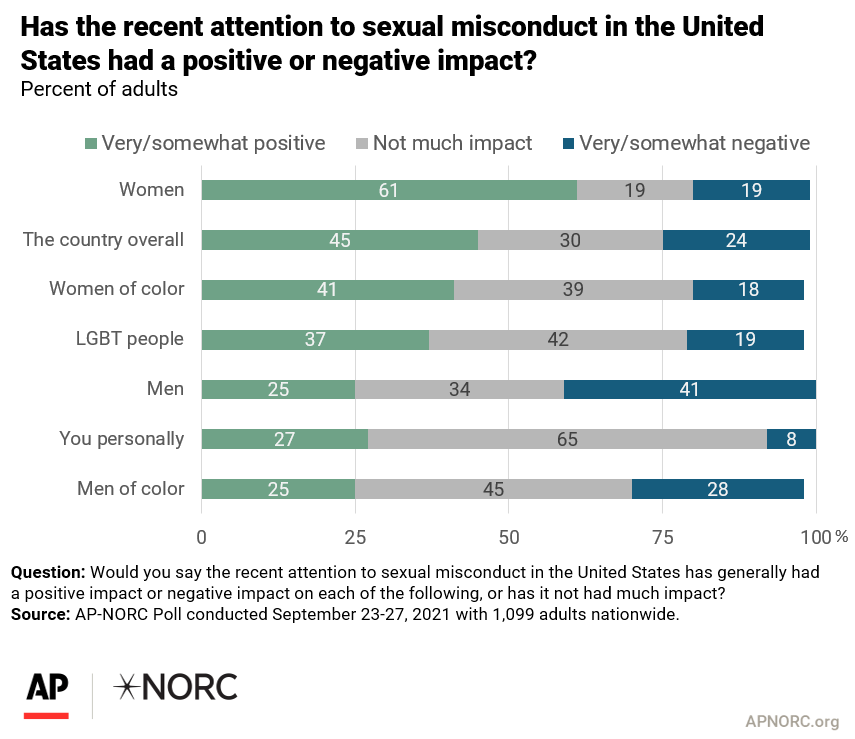
While women are more likely than men to call sexual misconduct a serious problem in workplaces overall and in Hollywood, higher education, the military, and the government, fewer women and men regard the issue as serious now compared to four years ago.
Currently, 17% of employed Americans say sexual misconduct is a serious problem at their workplace, 14% consider it somewhat serious, and 68% do not think sexual misconduct where they work is a serious problem. In 2017, 32% of employed adults said it was a serious problem at their workplace.
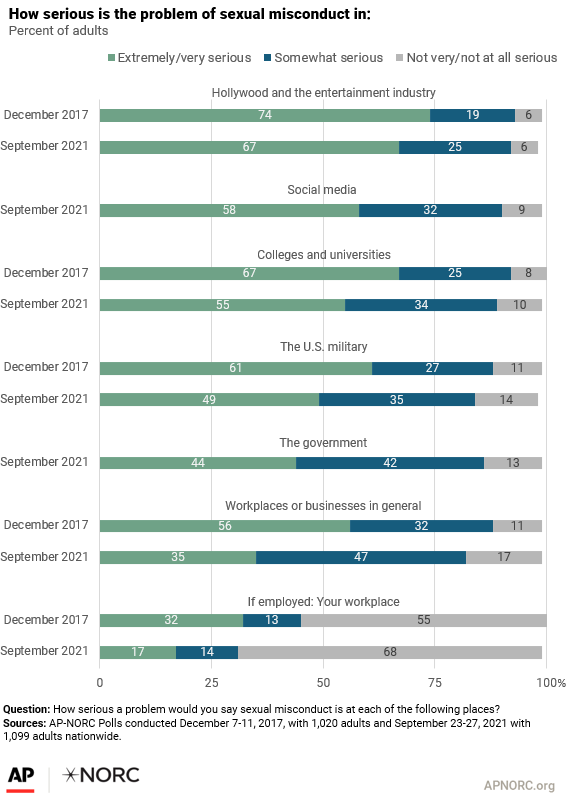
Most Americans think the #MeToo movement is leading to more people speaking out and more companies taking action to prevent it. More than half say they are more likely to speak out if they witness sexual misconduct or are a victim.
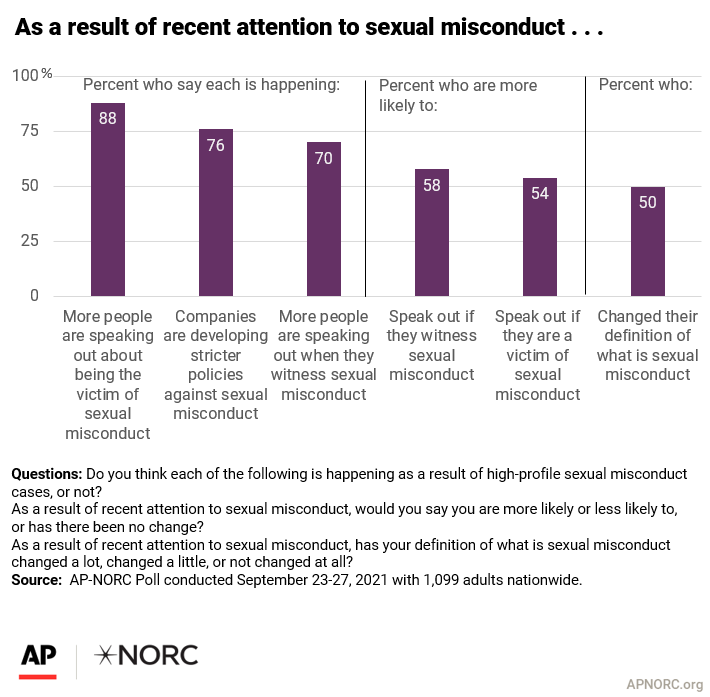
Over the past year, more than half of employed Americans have received training on workplace harassment and a third have discussed sexual misconduct with others. About a quarter report having changed their behavior toward other people. Men and women are just as likely to have received workplace training and altered how they interact with others. Women are more likely than men to have talked about sexual misconduct though (40% vs 27%).
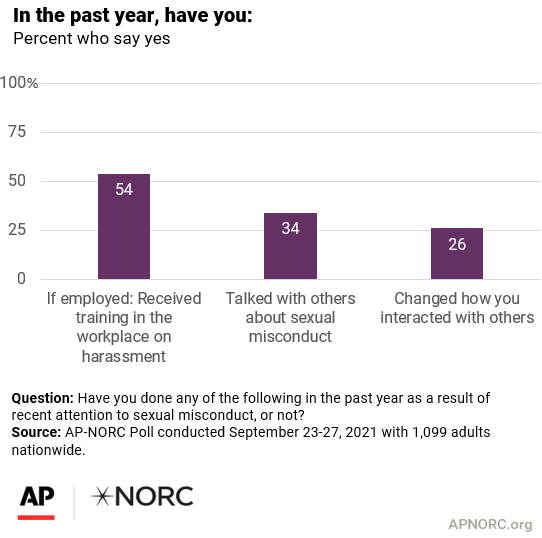
Still, most people think the entertainment industry, higher education, the government, the military, law enforcement, social media companies and workplaces in general are doing too little to deal with the problem of sexual misconduct. Older Americans, those with more formal education, and Democrats are more likely to say various groups and institutions have not put in enough effort to tackle the problem. And women are much more inclined to say not enough effort has been expended to deal with the challenges of sexual misconduct.
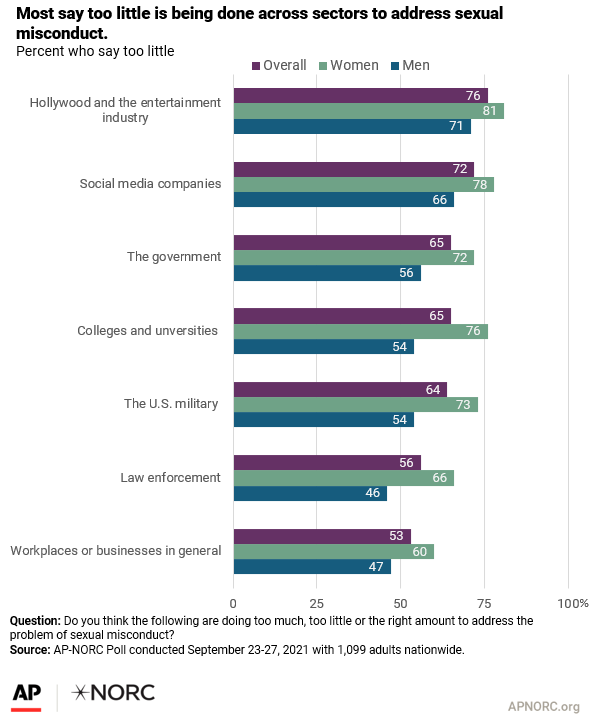
Few Americans – men and women — think false accusations of sexual misconduct in the workplace are common. There has been little change since 2017. Overall, 11% say people are falsely accused of sexual misconduct all or most of the time, and 71% think it happens sometimes. Eighteen percent think false accusations hardly ever or never happen.
And few people are worried that they could be falsely accused of sexual misconduct. Nearly a third of men are at least somewhat concerned that their actions or words could be misconstrued, while more than 80% of women have little or no worries about that.
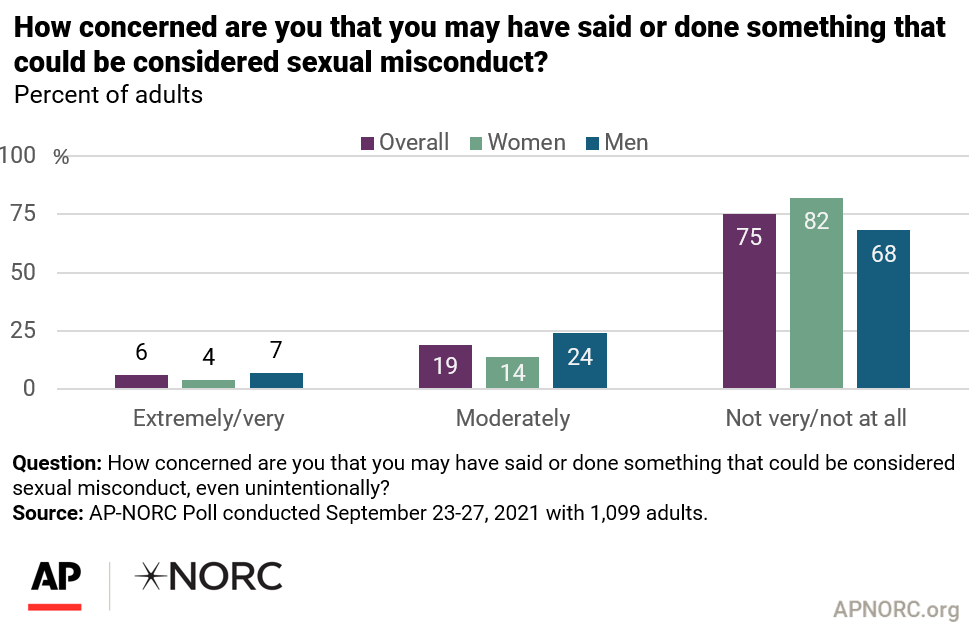
Among respondents of the survey, 11% of men and 34% of women have been the victim of sexual misconduct. Of women who have already been the victim of sexual misconduct, half worry about the prospect of being a victim again.
The nationwide poll was conducted September 23-27, 2021 using the AmeriSpeak® Panel, the probability-based panel of NORC at the University of Chicago. Online and telephone interviews using landlines and cell phones were conducted with 1,099 adults. The margin of sampling error is +/- 4.2 percentage points.
- Suggested Citation: AP-NORC Center for Public Affairs Research. (October, 2021).“”Four years later, most believe women have benefited from the #MeToo movement” apnorc.org/projects/four-years-later-most-believe-women-have-benefited-from-the-#metoo-movement




